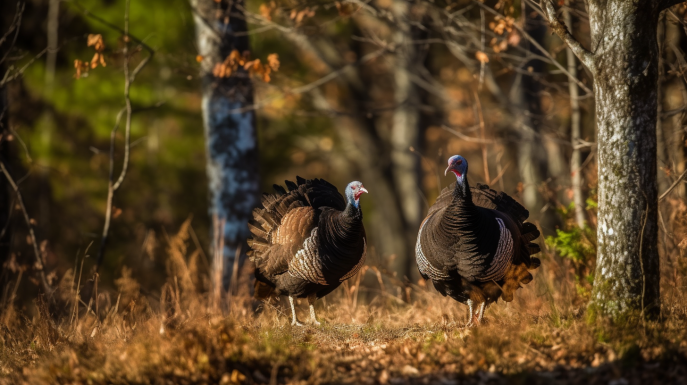In the serene realm of the outdoors, the delicate balance between wild turkey populations and hunting enthusiasts is under scrutiny. Over the last decade, the decline in gobbler numbers has stirred conversations among outdoor aficionados. As we navigate this terrain, Larry Dablemont, a seasoned outdoorsman, shares his observations and proposals for a harmonious coexistence.
Larry reflects on the forthcoming youth season, a pivotal event often marred by controversy. Regrettably, some see it not as an opportunity to nurture the next generation of hunters but rather as a platform for unethical practices. This misuse of the youth season, coupled with other factors, has contributed to a significant decrease in gobbler populations in various regions.
Drawing from his extensive outdoor experiences, Larry notes that certain private landowners restrict hunting on their properties, thereby safeguarding gobbler habitats. However, this protective measure is not widespread, leaving many areas vulnerable to overhunting.
Looking ahead, Larry proposes strategic interventions to restore equilibrium. He advocates for a revised hunting season structure, emphasizing a delayed spring season, a reduction in fall hunting activities, and tighter limits on turkey harvests. Additionally, he suggests rescheduling the youth season to align with the conclusion of the regular spring season, fostering a more responsible approach to hunting education.
Larry’s insights shed light on the changing dynamics of turkey mating seasons, urging wildlife agencies to adapt their strategies accordingly. He emphasizes the need to address the pervasive issue of poaching, particularly during youth seasons, which undermine conservation efforts.
While some states have implemented reforms to bolster gobbler populations, Larry questions why similar initiatives are not prioritized by agencies like the Missouri Department of Conservation (MDC). He points to financial interests as a possible hindrance to meaningful change, lamenting the bureaucracy that impedes progress.
Beyond his reflections on wildlife conservation, Larry shares revelations from an upcoming book penned by a former MDC employee. This candid account exposes systemic flaws within the agency, challenging readers to question official narratives.
As Larry prepares to defend his truth-telling in court against corporate and institutional backlash, he underscores the importance of upholding free speech. His unwavering commitment to transparency serves as a rallying cry for those who value the principles of the First Amendment.
In conclusion, Larry Dablemont’s journey through the wilderness offers valuable lessons on stewardship and advocacy. As we navigate the ever-evolving landscape of outdoor recreation, his voice resonates as a beacon of integrity and insight.

